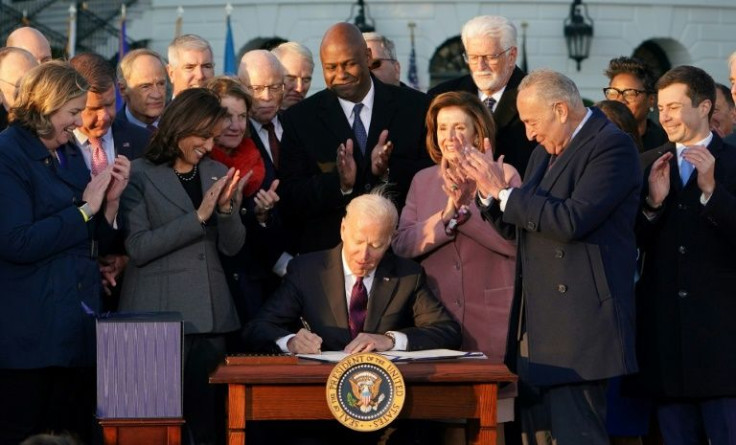Billions In Biden Infrastructure Deal Going Towards Mitigating Effects Of Climate Change

President Joe Biden signed The Infrastructure Investment and Jobs Act into law on Monday, a $1.2 trillion bill to address the nation's infrastructure needs. However, the spending bill will also focus on combating the effects of climate change.
Much of that investment will go toward mitigating climate-related disasters and minimizing the effects of man-made climate change on everyday life. The plan is to create a path to a zero-emissions future for the U.S. by 2050.
Nearly every aspect of the bipartisan legislation addresses climate change in some form.
A total of $50 billion will go toward security which includes cyberattacks and the impacts of climate change.
To clean up existing hazards, $21 billion will go toward reclaiming abandoned mine lands, cap orphaned oil and gas wells and a cleanup of Superfund and Brownfield sites.
According to The White House, $110 billion will go toward funding the repair of roads and bridges with a focus on mitigating the effects of man-made climate change. For transportation, the act includes $89 billion in guaranteed funding to improve and modernize transportation options and reduce carbon emissions.
The $17 billion investment in ports and $25 billion in airports will go toward electrification, among other low-carbon technologies, and has a goal of reducing emissions around these transportation hubs.
For Amtrak, the U.S. will spend $66 billion to create safe, efficient and climate-friendly alternatives to catch up with the rest of the world’s high-speed rail, specifically China, and make it a sustainable way to move people and freight.
Another $7.5 billion will go toward building a nationwide network of electric vehicle chargers. A $65 billion investment goes toward upgrading U.S. power infrastructure. And $55 billion will help expand access to clean drinking water.
Biden has already set a goal of achieving net-zero emissions no later than 2050 and reducing greenhouse gas pollution by 50% to 52% from 2005.
The U.S. rejoined the Paris Climate Agreement earlier this year. The president also made a number of commitments at COP26, but a lot of the focus is mitigation-based and does not go far enough for many environmental activists.
© Copyright IBTimes 2024. All rights reserved.






















